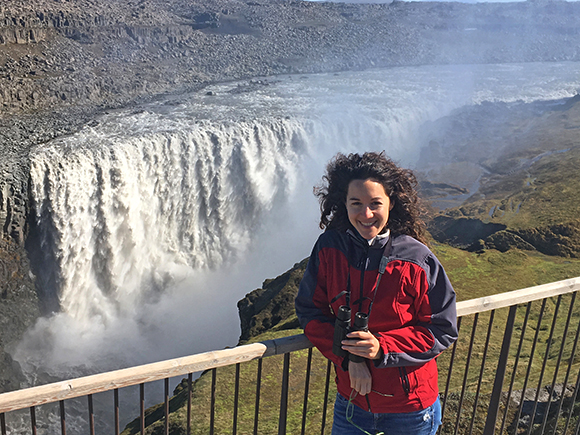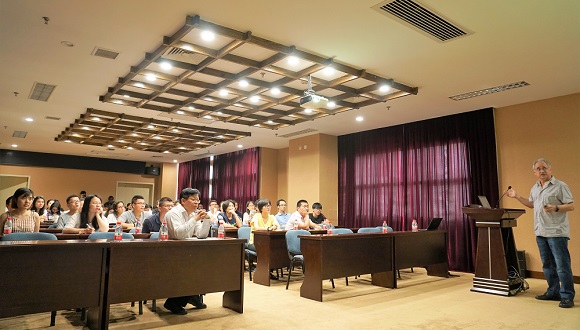“A temperature rise of 2ºC could have irreversible effects on the planet”
We interviewed Sara Marañón, a postdoctoral researcher at CREAF with a Marie Curie grant.

We interviewed Sara Marañón, a postdoctoral researcher at CREAF with a Marie Curie grant.

Species of birds living on islands have evolved to have larger brains than their continental relatives. Island conditions have prompted this post-colonization evolution, which enhances adaptability to environmental changes.
Josep Penuelas visited China the first two weeks of May 2018 as grantee of the Distinguished Fellow of the Chinese Academy of Science.

Plants' annual growing season has lengthened, exposing them to frost more often at a time when they are particularly sensitive. That can be detrimental to their activity and lead to substantial crop yield losses.
Once rehydrated, holm oaks have a large capacity for recovery thanks to their high adaptation to the Mediterranean climate. The release of organic compounds into the soil represents a considerable loss of carbon for the holm oak and also modifies the microbial community, which may lead to additional effects on the tree.
Mean male height in countries with a high level of GDP is 23 cm greater than in countries with a low level, a difference that has risen by 1.5 cm over the last 30 years. Thanks to a more varied diet rich in animal products, the annual nitrogen and phosphorus intake of people in wealthy countries is practically twice that of those in poor countries.
Rossella Guerrieri has a PhD in Forestry and Environmental Sciences and has been a post-doc at CREAF since 2016. Her projects are related to the natural cycles of forests and she is a strong advocate of the social impacts of science.
The production of essential crops such as wheat, maize, rice, and soybean will be substantially reduced. Effective measures for climate change adaptation will be necessary, as well as improvements in crop genetics in order to reduce the impacts of climate change.
A new study led by Josep Peñuelas and published in Nature Ecology and Evolution reveals that CO2 abundance in the atmosphere no longer has a powerful fertilizing effect on vegetation. The greening that has been observed in recent years is slowing and this will cause CO2 levels in the atmosphere to rise, thus increasing temperatures and leading to increasingly severe changes in climate.
In an article in the journal Science, Josep Peñuelas warns that we must immediately begin studying the changes we are causing in the microbial world, improve water treatment systems, and change crop fertilization practices.

